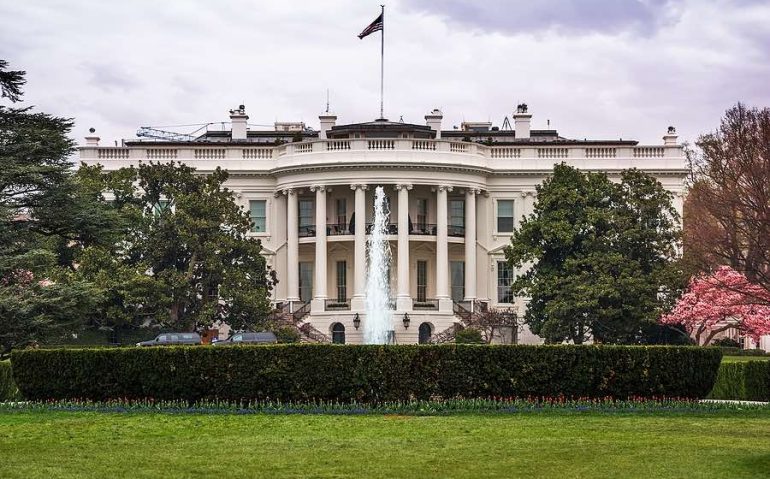In a landmark move, the Biden-Harris Administration has taken decisive action to address the promises and potential risks of Artificial Intelligence (AI). Seven leading AI companies – Amazon, Anthropic, Google, Inflection, Meta, Microsoft, and OpenAI – have voluntarily committed to adopting stringent safety, security, and transparency measures to ensure the responsible development of AI technology. The White House announced this significant milestone as part of its broader commitment to protect Americans from harm and discrimination in the rapidly evolving world of AI.
A Step Towards Responsible AI Development
The rapid advancements in AI technology have opened new doors of possibilities while also raising concerns about safety, security, and ethical implications. Acknowledging the importance of striking a balance between innovation and protecting the rights and safety of citizens, President Biden and Vice President Harris have been at the forefront of efforts to address these challenges since taking office.
The announcement underscores the Biden-Harris Administration’s commitment to fostering a culture of responsible AI development and encouraging industry leaders to uphold the highest standards. These voluntary commitments represent a critical step toward building safe, secure, and transparent AI technology that benefits society without compromising individual rights.
Key Commitments by Leading AI Companies
The seven AI companies have pledged to implement specific actions that align with three fundamental principles: safety, security, and trust. These commitments demonstrate their determination to be responsible for AI development. Key highlights of the companies’ commitments include:
1. Ensuring Products are Safe Before Introducing Them to the Public
The companies will subject their AI systems to internal and external security testing before releasing them to the public. These tests will include assessments by independent experts, safeguarding against critical sources of AI risks such as biosecurity and cybersecurity.
They will also actively share information with governments, civil society, and academia on managing AI risks, including best practices for safety and technical collaboration. The industry aims to collectively address challenges and improve AI technology’s overall safety by promoting information exchange.
2. Building Systems that Put Security First
To protect proprietary and unreleased model weights – the most critical components of an AI system -the companies commit to investing in cybersecurity and insider threat safeguards. Ensuring these model weights are released only when intended and with due consideration of security risks is a vital step in preventing unauthorized access and misuse.
Additionally, the companies will facilitate third-party discovery and reporting of vulnerabilities in their AI systems. This proactive approach will enable swift identification and resolution of potential issues even after an AI system’s release.
3. Earning the Public’s Trust
To enhance transparency and prevent deception, the companies will develop robust technical mechanisms to identify AI-generated content, such as watermarking systems. This move fosters creativity while reducing the risk of fraud and misleading information.
The companies commit to publicly reporting their AI systems’ capabilities, limitations, and appropriate and inappropriate use areas. By addressing security and societal risks, including fairness, bias, and privacy concerns, they aim to build trust with users and the broader public.
Furthermore, the companies will prioritize research on societal risks associated with AI systems, focusing on avoiding harmful bias and discrimination. By deploying advanced AI systems to address society’s most pressing challenges, such as cancer prevention and climate change, these companies aim to contribute positively to global prosperity, equality, and security.
Global Collaboration and Future Steps
Recognizing the international dimension of AI development, the Biden-Harris Administration seeks to collaborate with allies and partners to establish a robust global framework governing AI development and usage. The Administration has consulted with numerous countries, including Australia, Canada, France, Germany, India, and the United Kingdom, among others, to align efforts and shared principles for AI governance.
In addition to these voluntary commitments, the Biden-Harris Administration is actively working on executive orders and bipartisan legislation to promote responsible AI development further and protect American interests.
A History of Commitment
The announcement builds upon previous initiatives undertaken by the Biden-Harris Administration to address the challenges and potential of AI technology. From the publication of the landmark AI Bill of Rights blueprint to signing an Executive Order to root out bias in AI design, the Administration has demonstrated its commitment to safeguarding citizens from the negative impacts of AI.
Earlier this year, the National Science Foundation’s investment in seven new National AI Research Institutes underscored the government’s focus on advancing responsible AI development. The release of the National AI R&D Strategic Plan further solidified the Administration’s dedication to promoting AI’s safe and ethical use.
In the coming weeks, the Office of Management and Budget will release draft policy guidance for federal agencies to ensure AI development, procurement, and usage prioritize protecting the rights and safety of the American people.
The voluntary commitments secured from leading AI companies signal a potential turning point in the responsible development of AI technology. The Biden-Harris Administration’s dedication to fostering innovation while prioritizing the safety and rights of Americans sets a strong example for the global AI community.
As AI continues to shape various aspects of our lives, the importance of such commitments cannot be overstated. By prioritizing safety, security, and transparency, these companies embrace their responsibility to ensure AI technology benefits society and mitigates potential risks.
As the Biden-Harris Administration pursues further actions and collaborations at home and abroad, the hope is to establish a robust and inclusive framework that guides the responsible use of AI, ushering in a future where technology serves as a force for good.







